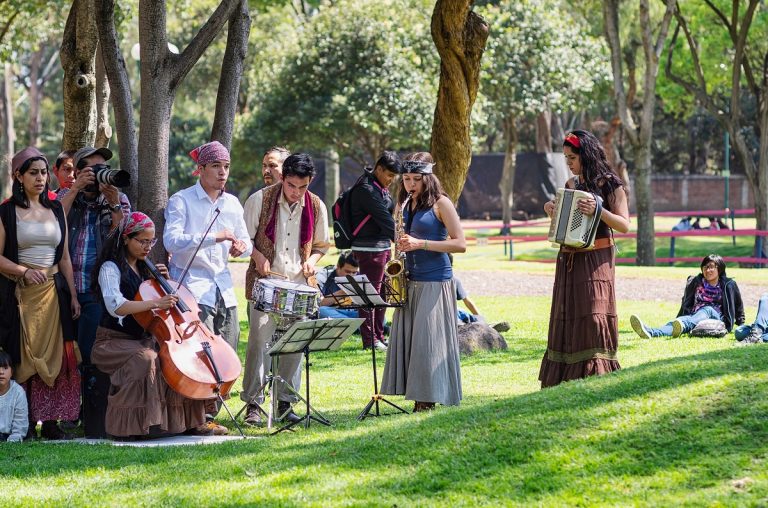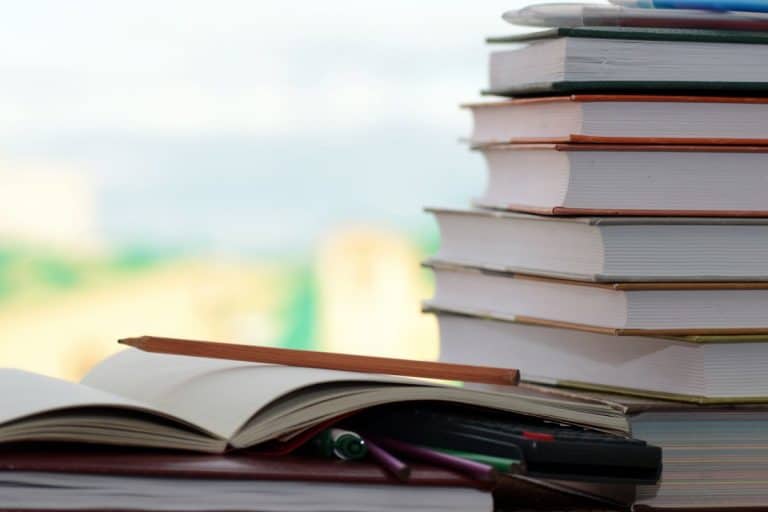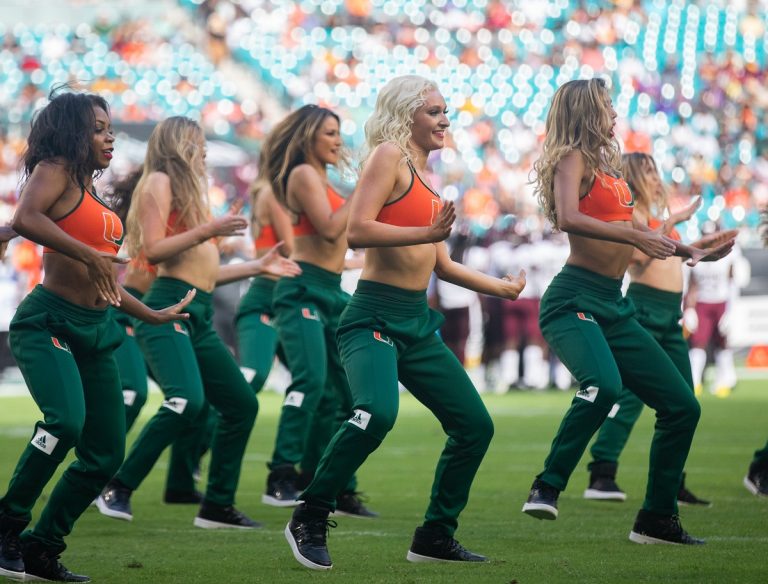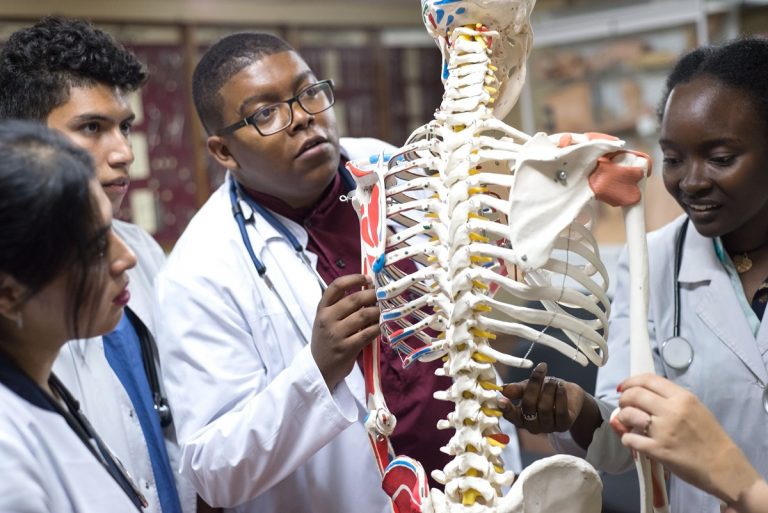5 Easiest Pharmacy Schools to Get Into (2023 Updated)
Pharmacists are the unsung heroes of the civilized world. Everyone always talks about doctors and how they save lives, but most people seem to forget that pharmacists are the cogs that make society’s wheels turn.
Pharmacists distribute prescription drugs to people and also advise them on the best way to take these drugs. They can guide you on topics like dosage, side effects, and potential reactions.
Becoming a pharmacist is an admirable endeavor, but it’s also hard. That’s why we wrote this guide: to help people like you get into pharmacy school and follow your dreams. Helping people through pharmacy isn’t easy by any means, so you have our full support.
In this article, you’ll learn everything you need to know about getting into pharmacy school, and we’ll also provide you with a list of the easiest schools to join.
If you aren’t a model student, or you don’t care about joining a top institution because you value knowledge over branding, you’ve come to the right place.
Keep reading the article to find out the easiest pharmacy schools to get into.
Pharmacy Schools Prerequisites
Different schools have different prerequisites, but most of these will be at least somewhat similar between all schools. By working on the requisites in this list, you’ll make a strong case for yourself in your school application.
Even if the schools on the list are easier to get into than the average, you still need to put in hard work and dedication. Don’t sleep on these prerequisites, they will make your study journey much easier.
Take Relevant Courses
Every pharmacy school will ask you to prove you have completed specific courses in your application before letting you enroll. Since you will work in medicine, focus on biology studies, as well as chemistry.
Here is a list of courses you will need to pass before applying to any pharmacy school:
- General Chemistry I & II
- Organic Chemistry I & II
- Anatomy I & II
- Physics
- Biology I & II
- Physiology
- Statistics
- Calculus
- English Composition
- Psychology or Sociology
If the last 4 seem out of place, think about it: you are dealing with human beings, with their fears and wishes. Pharmacists, like doctors and nurses, are supposed to be a positive force in our daily lives. You must be a great communicator, because you will most likely have to convince certain people that you are acting in their best interests.
Work on Your GPA
GPA is like the holy grail of education. Everyone wants it, and few people understand it. Most schools will require your GPA to be at least 2.5, but even if some schools don’t ask for a specific GPA, you still need to work to get it as high as possible.
The GPA is an excellent predictor of academic success, and most schools will place a lot of emphasis on your GPA score while considering your application. Plus, working to increase your GPA is a great way of preparing for pharmacy school.
Sometimes you might run into people who claim to have been accepted with a lower GPA. That is entirely possible, but you should first and foremost ask yourself if their claim is true, and then consider their situation.
Getting into pharmacy school with a low GPA is an exception, not the rule, so don’t slack off.
Gain Relevant Pharmacy Experience
Virtually every pharmacy school will require you to prove you have worked a certain number of hours in the pharmacy field. The work can be voluntary or paid, what matters is that you’ve been involved with pharmacy work.
The best way is to shadow a real pharmacist. Literally follow them around like a shadow and see how they operate, learning from their experience.
Getting a shadowing opportunity isn’t always easy, so if you’re struggling with it, contact pharmacy schools in your region for help. Most schools have programs specifically made to help students find shadowing opportunities.
As for how many hours, it depends on each school, but the more the merrier! In fact, I’d argue that work hours are even more important than GPA, since nothing can beat experience on the job.
Take the PCAT (Pharmacy College Admission Test)
The PCAT is a test used to assess the candidate’s qualifications to see if they are ready for pharmacy colleges. It’s an important step to take, as every school will ask you to take it, so prepare for it early.
Don’t panic, it’s a general academic knowledge test with also questions from the world of biology and chemistry. If you have done the prerequisite coursework, it shouldn’t be hard to pass. Basically, if you satisfy the previous prerequisites on this list, you will ace the test with no trouble.
Still, it’s an important step you should take, so don’t come unprepared.
Get at Least Two Letters of Reference
Letters of reference are a great aid in getting into pharmacy school. Some schools require up to 4 letters, while others are content with 1. Quality of reference matters a lot, so a letter from a pharmacist holds way more value than one from your academic advisor.
These letters are supposed to prove you are a mature individual ready to take on pharmacy coursework. My suggestion is to get two letters of reference: one from a pharmacist, and one from a professor. Why these two specifically? The letter of reference from a pharmacist validates your work experience, while the one from the professor proves you are an outstanding student.
Prepare for the Interview
Every school will schedule an interview with your application. That’s where you get to shine and prove you are dedicated and prepared to take on the journey to become a pharmacist.
As long as you have completed all the prerequisite coursework and have gotten some real-life experience, you should be able to ace the interview. You can also try to read other people’s experiences with interviews and prepare to answer certain questions more in depth.
Apply Through the Pharmacy Graduate Application Service
PharmCAS is a centralized application service designed to let you apply to multiple pharmacy schools with a single application. This is extremely useful, as it lets you apply to different schools without having to rewrite your application from scratch every time.
What Makes It Easier to Get Into a Pharmacy School Compared to Another?
Prerequisites aren’t the only deciding factor when it comes to making a list of the easiest pharmacy schools to get into.
Consider the following scenario: a school has 2.000 available spots, and 8.000 people apply for them. Another school has 3.000 available spots, and 16.000 people apply for them.
The first school might have higher requirements, but it’s still easier to join purely because of the sheer number of applicants to the second school. You want to make it as easy as possible for yourself, so you want to go where there’s little competition.
Acceptance rates are another important factor to consider. Ideally, you want to pick a school with high acceptance rates and low requirements. But there is one more factor to consider.
What about the environment? You will spend multiple years in pharmacy school, so you want to make sure your life can be enjoyable during these years. I don’t know you so I can’t tell you where to go, but here are some questions to help you:
- What type of cities do you prefer? Bustling? Quiet? What about the nightlife?
- What type of activities interest you the most? Perhaps you have an interest in art and would rather live in certain cities, or maybe you love hitch-hiking or sea towns.
- What about the locals? Every place has its culture, so make sure you can fit right in.
5 Easiest Pharmacy Schools to Get Into
This list takes various factors into consideration:
- Prerequisite courses
- GPA requirements
- Letters of reference required
- Hours of work experience required
- Acceptance rate
Naturally, not all of these hold the same weight. For example, getting letters of reference is harder, and thus more important, than looking at a school’s acceptance rate, which is a number that varies every year and that depends on way too many factors outside your control.
Sounds fair? Keep reading to find out the easiest pharmacy schools to get into.
1. University of Kentucky
University of Kentucky offers a pharmacy program with an extremely high acceptance rate of 96%. Sounds too good to be true? It’s not! It’s real.
But how do you get into this pharmacy program? Here are the requisites:
- A passing grade of at least C in the following courses:
- Biology I with lab
- Microbiology I with lab
- General chemistry with lab
- Organic chemistry with lab
- Human Anatomy
- Physiology
- Statistics
- Mathematics
- Business
- English
- Oral Communications
- Electives such as biochemistry, chemistry, genetics, and physics
- A GPA of at least 2.5
- There are no pharmacy hours observation hours required, but they are still recommended
- Taking the PCAT is not needed anymore, it used to be up to 2019
- At least three letters of reference, one of which should come from a professor or pharmacist
The only problematic requirement is the letters of reference, these are always hard to come by. At least you don’t need any previous work experience or a high GPA to apply, though obviously having them is a major advantage over other applicants.
2. University of Arizona
The University of Arizona offers a pharmacy program open to everyone. The acceptance rate of the program is 85%.
As for the requirements to apply to the program, here they are:
- A passing grade of at least C in the following courses:
- General chemistry
- Organic chemistry
- Anatomy & Physiology
- General Biology I
- Microbiology
- Physics I
- English composition
- Calculus
- Statistics
- Social sciences
- Traditions & cultures
- Fine arts or literature
- Diversity emphasis
- A GPA of at least 2.5
- At least 80 hours of pharmacy observation hours / work experience
- At least two letters of reference
It shouldn’t be an issue to satisfy these requirements, as they are fair. The university doesn’t specify from whom it accepts the letters of reference, it only gives a list of people who are “recommended but not required” or “conditionally accepted”, such as pharmacists, employers, or professors.
The 80 hours of pharmacy observation hours are divided into two: 40 of these should be pharmacy / healthcare hours, which are achieved through shadowing of a pharmacist, while the other 40 should be community involvement hours.
3. South College
A big reason I included South College’s pharmacy program is that it only lasts 3 years instead of 4. It might seem like it’s a bit harder because, after all, you have less time to complete the same study path of other people, but that’s not what actually happens.
Unfortunately, I couldn’t find any data on the college’s acceptance rates.
What are then the requisites to apply to South College? Here you go:
- Complete the prerequisite courses in:
- General biology with lab
- Anatomy and physiology with lab
- General chemistry with lab
- Organic chemistry with lab
- Microbiology with lab
- Calculus
- Statistics
- English composition
- Speech communication
- Economics
- Electives in humanities
- Electives in social / behavioral sciences
- A minimum GPA of 2.5
- No observational hours are required, though they are recommended
- At least two letters of recommendation, with 3 being strongly recommended, one of which has to be from a pharmacist, another from a professional adviser, and the last one from anyone who isn’t part of the applicant’s family
- The PCAT isn’t necessary
The requisites are in line with the other pharmacy schools on this list. Getting three letters of reference, especially with such specific requirements, can be a challenge, but as I’ve explained earlier, most pharmacy schools have programs that will let you shadow real pharmacist, and hopefully get letters of recommendation from them.
4. University of Utah
Another strong contender for this list is the pharmacy program offered by University of Utah. We can already see though that it’s getting progressively harder to get into the pharmacy schools on this list: the first two had acceptance rates above 85%, while the University of Utah’s pharmacy program has a 62% acceptance rate.
It’s not low enough to get worried about being too hard to join though, and we will now see why. Here are the requirements to get into this program:
- Completing prerequisite courses in
- Human anatomy
- Human physiology
- General chemistry with lab
- Organic chemistry with lab
- Calculus
- Physics
- Statistics
- Microbiology
- Professional / technical writing or public speaking
- A minimum GPA of 2.75
- No hours of observational work are required, but they are strongly recommended
- Two letters of recommendation, one from a pharmacist, supervisor, or healthcare professional, the other can be from a professor
- The PCAT is required
Prerequisite course requirements are lower than that of other schools in this list, and there are no required work hours to show in your application. Overall, getting into University of Utah’s pharmacy program should be doable for most people who are willing to put in a modicum of effort.
5. Texas Southern University
This university has a very low acceptance rate compared to other schools in this list: 32%. However, I still listed it because the prerequisites are still very low, plus the university has the highest yield (enrollment rate) out of all pharmacy schools, with a respectable 47.98% rate.
Whatever the case, here are the requirements to apply to Texas Southern University:
- Complete the required courses in:
- Biology I & II with lab
- Anatomy & Physiology I & II with lab
- Microbiology with lab
- General chemistry I & II with lab
- Organic chemistry I & II with lab
- Statistics
- Calculus
- Physics I with lab
- English composition
- Public speaking
- Social / behavioral sciences
- A minimum GPA of 2.75
- No minimum amount of observational work completed, though it’s strongly recommended
- Three letters of reference, one from a pharmacist, one from a supervisor, and one from a science or math professor
- The PCAT is required
As you can see the prerequisites are in line with those of other pharmacy schools on the list, and yet the acceptance rate is low. The high enrollment rate suggests that the school is excellent, but there’s something blocking students from performing well at the interview stage.
Conclusions
There you have it, a list of the easiest pharmacy schools to get into. Requirements for these schools are quite low, and these, except for southern Texas university, have a very high acceptance rate.
Naturally, even if getting into these schools is easy, you should still craft a strong application, because you are still competing with hundreds of other applicants for a limited number of spots.
Pharmacy school isn’t easy, on the contrary, it is quite hard. So even if you get into these, you’ll still need to put in hard work to get your degree and then pass the national license exam (NAPLEX).
I envy you: you have decided to dedicate your life to help to cure other people. You have my utmost respect. I hope this list helped you follow your passions and improve the quality of life of other people.
So, what are you waiting for? Apply to pharmacy school today and jump start your medical career!
Also Read:







